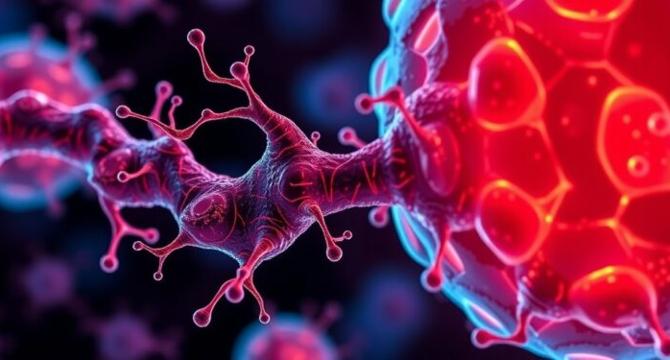Bioengineer
1M
370

Image Credit: Bioengineer
Cancer Hijacks Mitochondria to Paralyze Immune Attack
- Cancer cells send defective mitochondria into the immune cells and reduce their ability to proliferate, leading them into a dysfunctional, 'exhausted' state.
- This phenomenon might recast our understanding of how cancer manages to evade detection and destruction and might lead to new strategies for preventing immune sabotage.
- Mitochondria can migrate from one cell to another in humans, contrary to previous dogma.
- The research provides strong evidence that real tumors from cancer patients appear to deposit defective mitochondria into tumor-infiltrating lymphocytes (TILs), capable of leaving the T cells less capable of mounting an effective attack on malignant cells.
- If T cells are being undermined by receiving 'diseased' mitochondria, treatments might need an extra step that checks the metabolic health of these immune cells.
- Scientists may try to engineer small molecules or antibodies to block the mitochondria-transferring mechanism.
- Mitochondria are integral to vital processes of cell division, apoptosis and immune activation. If mitochondria are defective, for instance carrying significant DNA mutations or dysfunctional electron transport chain proteins, they could rob the T cell of crucial metabolic flexibility.
- Early clinical trials with TIL therapy have produced remarkable responses in certain cancers, but many participants do not experience a lasting remission.
- Another possible angle lies in blocking the path of those mitochondria from tumor to T cell altogether, if the cancer is using nanotubes or exosomes to pass defective mitochondria along.
- The presence of defective mitochondria inside T cells could serve as a biomarker for how well a patient might respond to immunotherapy.
Read Full Article
22 Likes
For uninterrupted reading, download the app